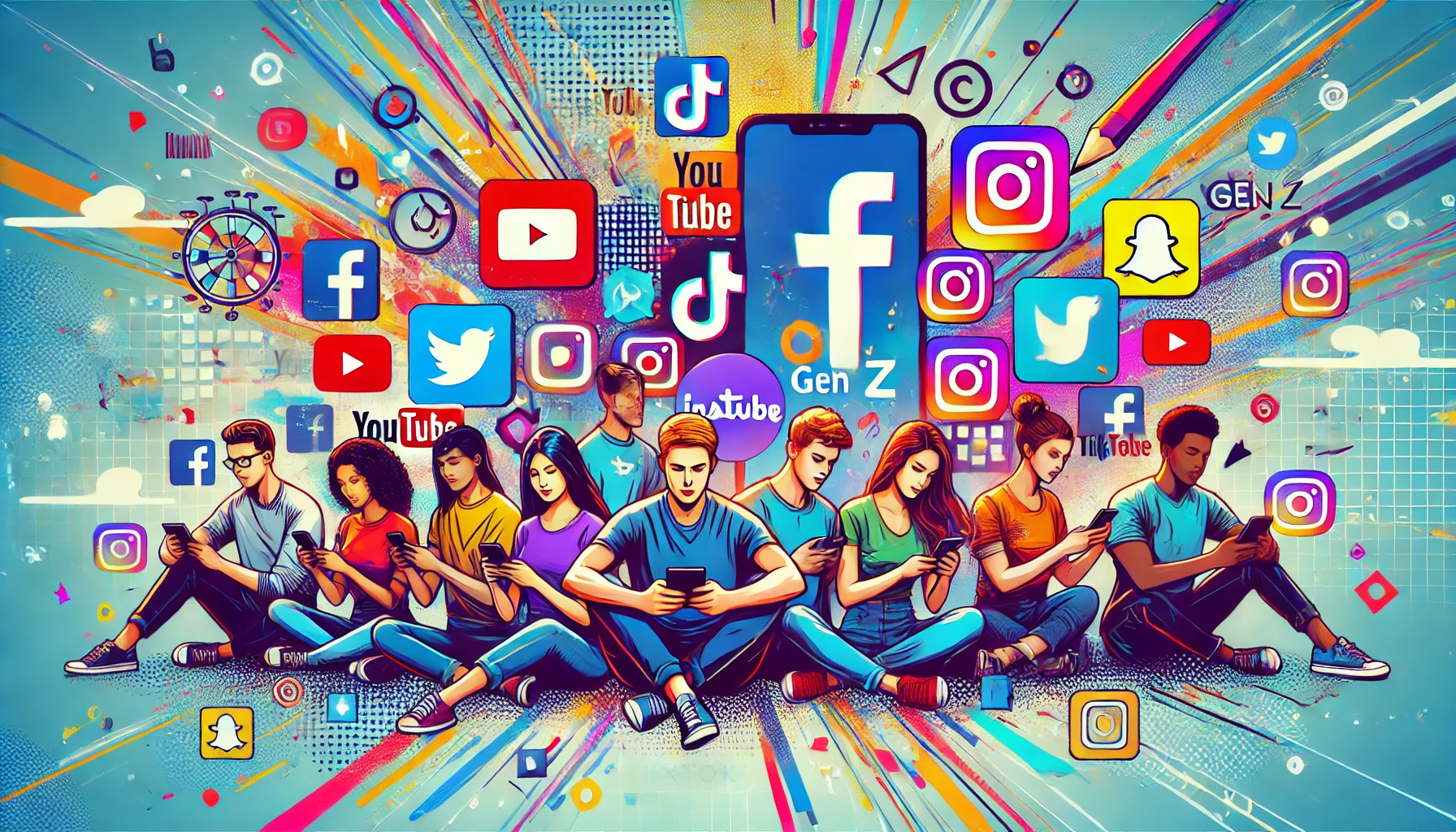Born between 1997 and 2012, Generation Z stands out as the digital natives of the 21st century. As the generation that grew up with the internet, social media, and smartphones, this group has established itself as the most empowered and digitally savvy demographic to date.
As a result, Gen Z consumers have higher expectations when it comes to products and services. In a world saturated with content and advertising, they’re more discerning of brands and seek authentic connections.
At PPCgods, we understand that marketing to Gen Z requires a unique approach. With our expertise in paid traffic, we delve into the intricacies of reaching this elusive audience by exploring the following topics:
- Understanding Gen Z Marketing Trends
- The Challenges of Advertising to Gen Z
- Effective Strategies to Market to Gen Z
Read on to discover everything you need to know about effective Gen Z branding, marketing trends, and advertising, and how PPCgods can help your brand connect with this generation.
Understanding Gen Z Marketing Trends
For this tech-savvy generation, using tablets, smartphones, and social media is second nature. Technology has granted them the freedom to select the content they wish to consume and the flexibility to decide when and where they engage with it.
Consider these Gen Z marketing trends and spending habits:
- According to a Pew Research Center survey, 95% of teenagers aged 13 to 17 possess a smartphone, while 97% use at least one of the seven major online platforms.
- Gen Z spends a significant amount of time on social media platforms. A 2022 survey shows that 54% of Gen Zers reported dedicating a minimum of four hours daily to social media, with an additional 38% spending more time than that.
- Their most-used social platforms include YouTube, Instagram, TikTok, and Snapchat.
- Gen Z stands out not only for their digital proficiency but also for their distinct spending habits. A 2021 Bloomberg report notes that this generation collectively has about $360 billion in disposable income. They’re inclined towards thrifting, saving more, and supporting companies that align with their values.
As a sizable consumer market, Gen Z advertising presents vast growth opportunities. At PPCgods, we believe that employing impactful Gen Z marketing strategies can give you a competitive edge and yield greater returns.
What Are the Challenges of Advertising to Gen Z?
Here are some unique challenges facing brands when marketing to the Gen Z market:
- Attention Must Be Earned Instantly Growing up with an endless stream of content at their fingertips, Gen Z consumers tend to have shorter attention spans. They typically give content about eight seconds of attention—four seconds less than millennials (HubSpot). Moreover, a global study reveals that Gen Z’s attention to ads dwindles in just 1.3 seconds—less time than any other age group.At PPCgods, we understand the importance of creating concise, engaging, and visually appealing content to capture Gen Z’s attention swiftly.
- They Evaluate and Filter Ads With Precision Another Generation Z marketing challenge is the preference for ads and content that are concise, visually appealing, and less intrusive. For social media marketing consultants and strategists, this requires a strategic shift towards creating impactful, short-form content.PPCgods employs advanced targeting and creative strategies to ensure your ads not only reach Gen Z but resonate with their preferences for quality over quantity.
- They Seek Transparency and Authenticity in Marketing Gen Z is a socially conscious generation. They tend to be critical of the businesses they support and are passionate about positively impacting the world. At PPCgods, we emphasize transparency and authenticity in every campaign, helping brands communicate their values effectively to build lasting relationships with Gen Z consumers.
- They Adopt a Mobile-First Mindset Approximately 75% of Gen Z predominantly uses smartphones, favoring them over computers and other devices. PPCgods ensures that all advertising campaigns are optimized for a mobile-first audience, providing seamless experiences across devices.
How To Market to Gen Z
Given how Gen Z customers behave and the challenges that come with it, brands should consider these six strategies to resonate effectively with this segment of their audience:
- Leverage User-Generated Content (UGC) When marketing to Generation Z, brands must avoid overly polished and staged ads. Instead, prioritize sharing unique content that builds trust and creates a more relatable brand image. PPCgods can help you harness the power of UGC to create authentic connections with your Gen Z audience.
- Harness the Power of Short-Form Video Video content aligns seamlessly with this generation’s preference for quick, entertaining, and bite-sized material. At PPCgods, we specialize in creating and promoting short-form videos that capture the essence of your brand in seconds, driving engagement and conversions.
- Prioritize Personalization in Marketing Personalization is key when marketing to Gen Z. PPCgods uses data-driven insights to tailor every aspect of your campaign, from social ads to email campaigns, ensuring that your brand speaks directly to the unique preferences of each Gen Z consumer.
- Collaborate With Influencers in Your Niche Over 70% of Gen Z and Millennials follow influencers on social media. PPCgods can connect your brand with the right influencers to amplify your message, increase brand visibility, and build trust with Gen Z consumers.
- Invest in Immersive Experiences Gen Z shoppers are drawn to interactive and immersive experiences. PPCgods can help you create campaigns that leverage augmented reality (AR) and other innovative technologies to captivate Gen Z and enhance their shopping experience.
- Embrace Social Responsibility Effective Gen Z branding involves being transparent about your products and practices. PPCgods partners with brands that prioritize social and environmental responsibility, ensuring that your marketing efforts resonate with Gen Z’s values and beliefs.




